Have there been more interesting adventures in your life than in computer games?
Our low-level wind does not distinguish our own living experience from fiction . That is what we see in games, movies and books. The brain doesn't care. What happened in the last game - just went into the piggy bank of experience, like what happened yesterday in the office. Thanks to the development of IT and our imagination, we can experience first-person experience that can never be experienced in reality.
I will illustrate with a number of memories. Remember the grass under the wind in the stalker and run up to the 4th unit under the military negotiations; final dialogues with Elizbeth from Bioshok; multi-storey island Hansha of Deus Ex; virtually all first impressions of Mass Effect colonies; restructuring of consciousness in the "Route-60"; the ending of the first book The Witcher. And so on.
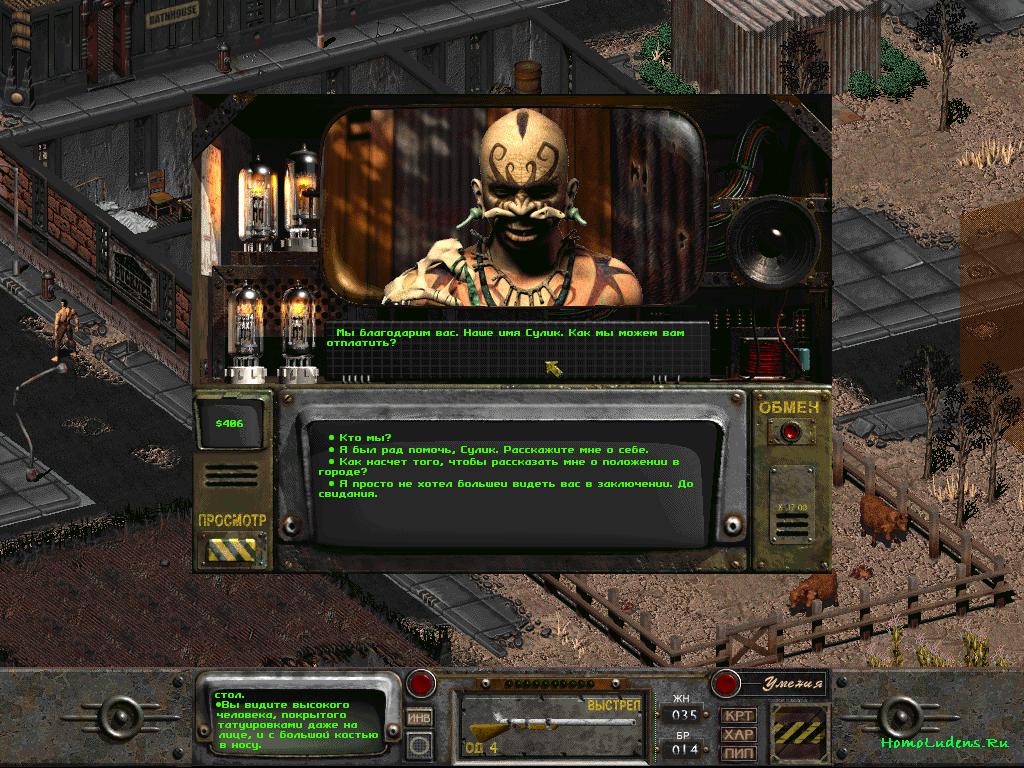
')
Perhaps almost every one of us was in the hundreds of worlds of Hyperion, watched the dysfunction of reality and went to the Bottom Edge on "Out-of-Band". We went together with Morrigan in a suicide attack on the dragon; together saved friends in Far Cry; flew to the sectoid terror in Lima and drove with Cain in a taxi in V: tM.
This and much more creates the suspension of disbelief paradox - the suspension of disbelief.
Suspending disbelief is a relatively young term that is closely related to fictional reality. In general, if you recall, the genre of fiction itself, as such, also appeared relatively recently. Everything that was in the epic, fairy tales and religious stories was perceived by people of past eras as a real experience. In terms of the level of distrust, this information referred, say, to the maximum to “Mikhalych tells about fishing”. It is clear that caught. Well, one and a half times less, but caught the same. Simply, even the epic and myths were practical life stories, and not something that is purely symbolic. Stories and were a reality.
So, when today you load a saved game and again go into a dialogue with a key character, and then persuade him to something important - this is the suspension of disbelief. You are trying to match two facts in dissonance: the continuity of the plot of the game and the violation of this continuity by loading. Similarly, when a bullet (or a dozen) hits a character, and he continues to go further, because a lot of experience points are pumped into health. In reality, this does not happen, but the model of the game introduces its own corrections. Similarly, when you need to step on a grenade launcher to pick it up. Or when 20 rifles are in the inventory, because I want to bring them to the merchant and sell them.
Impossible, but necessary for the game. You can only believe in the piece that you want to believe.
Here is a slightly more complicated example:
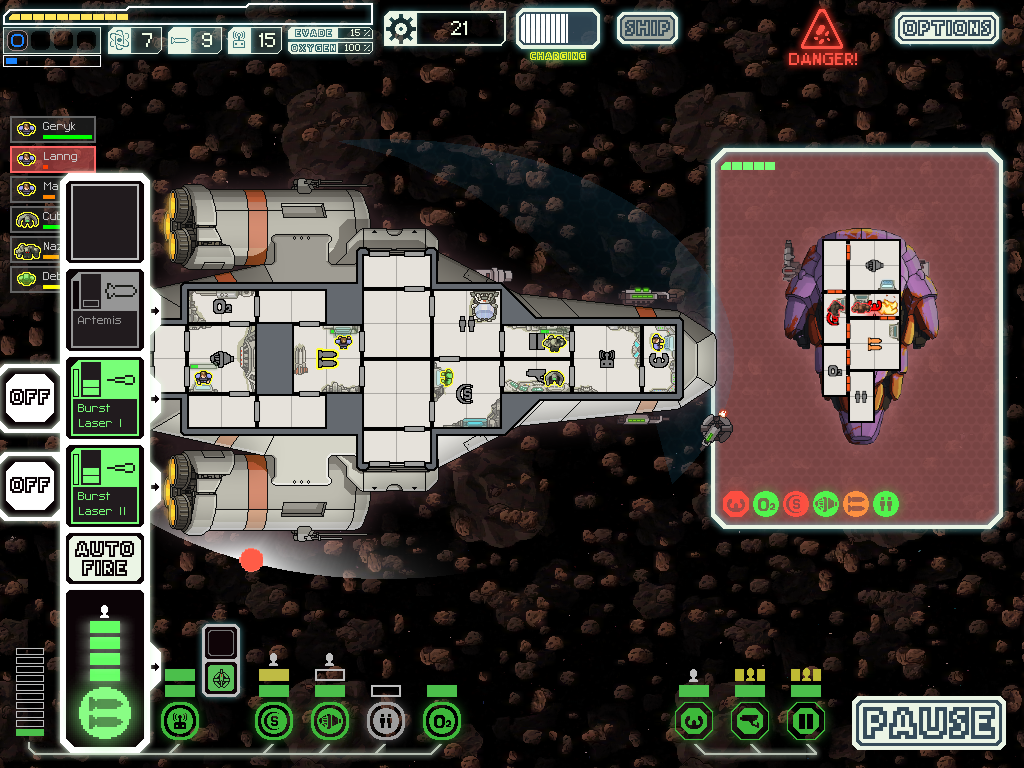
Have you ever wondered where in the FTL rockets and fuel are stored? That's right, over there, at the top of the screen. Special such compartment of the spacecraft. Not realistic? Well, to hell with it, it does not prevent you from playing. Nor does it interfere (as a whole) that in other games, in order to open a flimsy wooden door, you need not a run-up, not an explosive or a ram, not a shotgun shot into the castle area, but some character's key search. All these conventions, tied to the mechanics, distract from the plot of the game. The world of the game is trying to impersonate as real as possible in order to please you more.
This is logical and understandable, but at the same time it gives rise to something like fake memories.
Every time something very interesting happens in our real life, this real event immediately begins to compete with hundreds of others from our experience and memories. Climbed up the mountain and saw a great view? Here you have a hundred photos from Facebook and a recollected scene from the game. Flew a helicopter? Here are twenty simulators and three military films. Jumped with a parachute and managed it? Yeah, there is no analogue here, because such sensations are still difficult to transmit.
What is the result? Patterns of external memories are starting to devalue our own memories. For example, I really love to travel, and for me it’s just a thrill to go to different strange places. And along the way, I meet hundreds of tourists for whom the trip looks something like this:
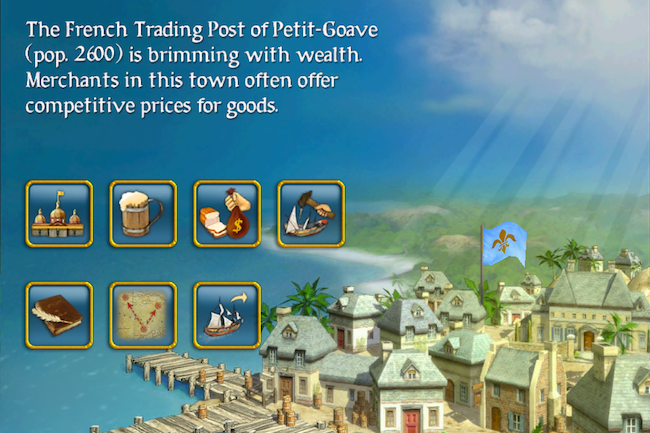
Landmark - restaurant - shop - repair ship (in general, find Wi-Fi) - write status in Facebook - find the next city in the guide - go there. I can see straightforwardly how some in their heads open this menu with icons on what can be done in the city. Or, cooler, people walk with a guide showing what is best to visit. It's like playing RPG on the passage.
However, adventures happen. Since one of the most important parts of my work is to do these adventures in the real world (including in our gaming stores and games), you need to understand what makes an adventure so. Even with the constant inflation of memories. I think this will also be useful to you, and, perhaps, you will be able to supplement my ideas. It would be helpful.
So, look at the factors.
1. The complex of feelings
Books affect only fantasy, films - also sound plus a picture, games give it all plus an interactive experience. It is very difficult to “kill” the memory, where the anchor points are, for example, the smell of rain, fear of jumping from a height, tactile sensations or something else that is not reproducible in exogenous carriers of experience. More channels of perception - more work for the brain. That is, in reality, you need to try to use as many modalities as possible.
2. Surprise
This is when something happens that you are not waiting for. The suspension of disbelief is based on the fact that the controlled environment is around. In life, when you are a tourist with a manual for tourists, a surprise is the aerobatics of entertainment.
3. Work
Specifically - to overcome. For almost five years I have been studying ways to make the pavilion games more interesting, and I can say that the most effective way is to invest the work of the players there. The preparation process makes the result more interesting. If you have been climbing a mountain for a long time, this is already an adventure. Overcoming and success are part of the adventure. When the plane fell in Iceland, and the man forbade him to go to him by car, pilgrims began to go there on the black sand. With a car, the plane would not have been such a wonderful place: it just went out, snuffed, left. And so you symbolically repeat the feat of the pilots after the crash.
4. Foulness
Living not like a magazine or a report is important. As in the parable-koan about dead leaves in the garden, without which it does not come to life. As one friend of mine, a photographer, said: “You can perfectly frame a picture by its layout, composition, and get an artistic picture. But the buzz is that life is jazz, and photos need chaos. ” Grumpiness is a sign of realism. Therefore, by the way, the KDPV on Habré should be vivid eyes - they work much better than the glossy-staged pictures, from which the corporate lawyer directly blows.
5. The absence of the role of the observer and the practical impossibility of posting
When a person stratifies the psyche of the participant and the observer - the observer wins. Each act begins to be analyzed not from the point of view of “how wonderful it is here and now,” but “how to tell about it later.” The main factor of travel becomes the quantity and quality of photos and statuses zaposchenny in the process. Here is a mountain. Here I am about her. I'm on top. I stroke the tiger. I'm at the bar. Watch me travel.
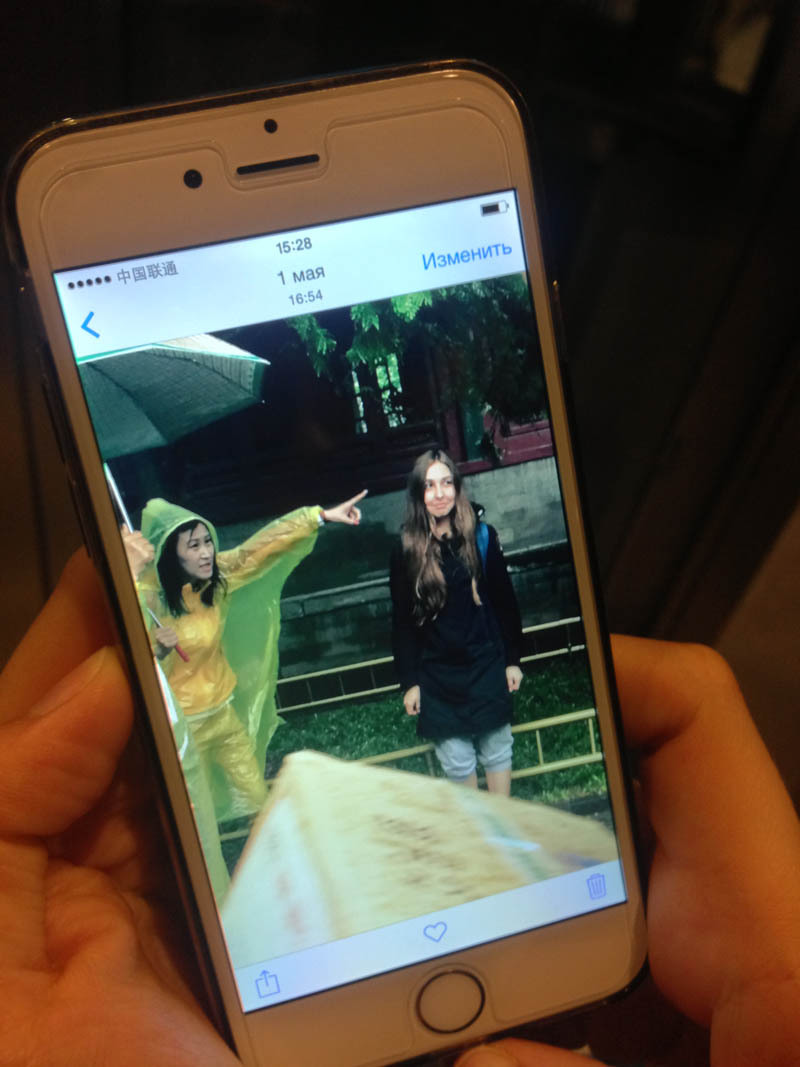
6. Deep personal experience
Or speaking in the language of social engineering - full targeting to the object of influence. Emotions can and should concern only you.
By the way, these 6 points are suitable for anything - from the process of making a purchase in our retail store to the process of writing a post. But back to the adventure and experience.
An ideal example of emotion marketing for me is Kangru Caves in South Africa. There is (at least, was) the route "Adventure". The guide takes a lantern, 30 people - and all together go to the caves. At first half an hour he leads people around the hall, where they once held classical music concerts.
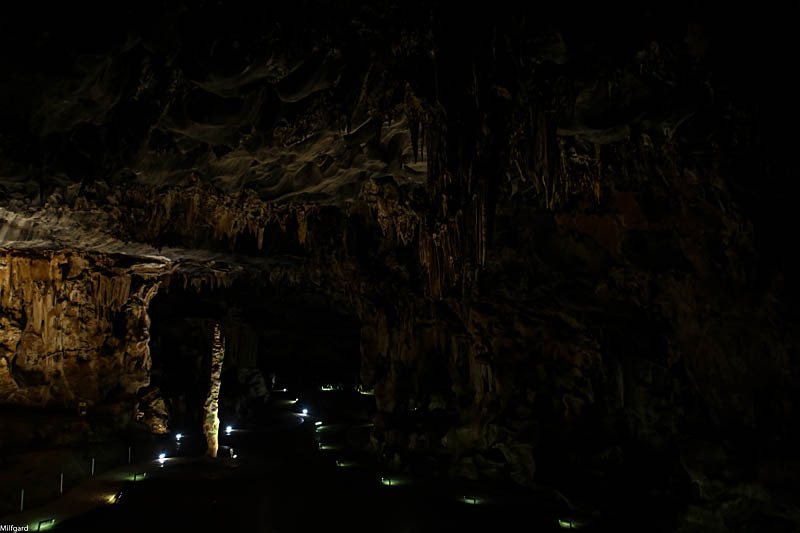
Then, when everybody got used and took photos on the duty program - the transition to a big failure. The guide says that here lies a man right on the bottom, and we need to save him. There are 6 minutes. Go!
What, where, why - all under the timer. Below is a model of the victim, it is necessary to pull out. Of course, we take out. Overall victory, awesome impression. Surprise.
Next - you need to go on all fours in a 1 meter high lase for about 2 minutes. Everything is simple, but very wet and dirty. Underground waterfall. Congratulations and perfect beauty charm.
Now the surprise is 6 meters up the skin of a shkuroder with one site half a meter. Spiral upwards, so that the head is in one direction - the body in the other, the legs are still somewhere in the third. Claustrophobia is wild, even for those who do not suffer from it. Scary in the first place. Emotions, work and real taste of victory at the top.
Have a rest? Well done. To get out, it remains to crawl just 15 meters in a manhole height of 40 centimeters. Yes, you have to push the cameras in front of you, here is Africa.
And at the end, at the exit - a machine with small coins with a cave pattern. A souvenir for a long memory. And a cafe. And a gift shop for shopping, calming the surviving Europeans.
Almost similar multimodal impressions are presented in the Museum of Nomadic Culture in Moscow, where you can book a private tour of the Mongolian dwelling, drink their tea, shoot from their bows, touch the fucking hedgehog , change into their costumes, play musical instruments and so on. Such an immersive theater, only you remain an observer, surprisingly.
For Digital Natives (that is, those who do not remember the world without a digital environment - people after the 90s) - there is often no contradiction for them. You can go fishing, and you can spend the weekend for a new toy. Impressions are the same. I myself once went on holidays to Wasteland 2. And yes, I am a geek. And yes, I no longer do that. And yes, I'm waiting for XCOM 3.
We have templates laid out by the media environment. An example is the same iconic consumption as in the cinema, the same formed expectations from life and different situations. The media environment gives us strong emotions, often stronger than you can get in life. Adventures are more diverse. The taste is sharper.
Sometimes - very sometimes - you will have adventures cooler than in books and games. Appreciate these moments and enjoy them. They happen not at everyone, but, you can believe, are remembered for a long time.
Another variant of non-conic consumption is non-standard actions that remove criticality and reveal new opportunities for adventure. Going beyond comfort is a good option for playing and psychological training. Therefore, we love to create garbage.
So all garbage. And adventures that are so wonderful that you just do not want to drag them on the social network.
I will illustrate with a number of memories. Remember the grass under the wind in the stalker and run up to the 4th unit under the military negotiations; final dialogues with Elizbeth from Bioshok; multi-storey island Hansha of Deus Ex; virtually all first impressions of Mass Effect colonies; restructuring of consciousness in the "Route-60"; the ending of the first book The Witcher. And so on.

')
Perhaps almost every one of us was in the hundreds of worlds of Hyperion, watched the dysfunction of reality and went to the Bottom Edge on "Out-of-Band". We went together with Morrigan in a suicide attack on the dragon; together saved friends in Far Cry; flew to the sectoid terror in Lima and drove with Cain in a taxi in V: tM.
This and much more creates the suspension of disbelief paradox - the suspension of disbelief.
Suspension of disbelief
Suspending disbelief is a relatively young term that is closely related to fictional reality. In general, if you recall, the genre of fiction itself, as such, also appeared relatively recently. Everything that was in the epic, fairy tales and religious stories was perceived by people of past eras as a real experience. In terms of the level of distrust, this information referred, say, to the maximum to “Mikhalych tells about fishing”. It is clear that caught. Well, one and a half times less, but caught the same. Simply, even the epic and myths were practical life stories, and not something that is purely symbolic. Stories and were a reality.
So, when today you load a saved game and again go into a dialogue with a key character, and then persuade him to something important - this is the suspension of disbelief. You are trying to match two facts in dissonance: the continuity of the plot of the game and the violation of this continuity by loading. Similarly, when a bullet (or a dozen) hits a character, and he continues to go further, because a lot of experience points are pumped into health. In reality, this does not happen, but the model of the game introduces its own corrections. Similarly, when you need to step on a grenade launcher to pick it up. Or when 20 rifles are in the inventory, because I want to bring them to the merchant and sell them.
Impossible, but necessary for the game. You can only believe in the piece that you want to believe.
Here is a slightly more complicated example:

Have you ever wondered where in the FTL rockets and fuel are stored? That's right, over there, at the top of the screen. Special such compartment of the spacecraft. Not realistic? Well, to hell with it, it does not prevent you from playing. Nor does it interfere (as a whole) that in other games, in order to open a flimsy wooden door, you need not a run-up, not an explosive or a ram, not a shotgun shot into the castle area, but some character's key search. All these conventions, tied to the mechanics, distract from the plot of the game. The world of the game is trying to impersonate as real as possible in order to please you more.
This is logical and understandable, but at the same time it gives rise to something like fake memories.
Memory inflation
Every time something very interesting happens in our real life, this real event immediately begins to compete with hundreds of others from our experience and memories. Climbed up the mountain and saw a great view? Here you have a hundred photos from Facebook and a recollected scene from the game. Flew a helicopter? Here are twenty simulators and three military films. Jumped with a parachute and managed it? Yeah, there is no analogue here, because such sensations are still difficult to transmit.
What is the result? Patterns of external memories are starting to devalue our own memories. For example, I really love to travel, and for me it’s just a thrill to go to different strange places. And along the way, I meet hundreds of tourists for whom the trip looks something like this:

Landmark - restaurant - shop - repair ship (in general, find Wi-Fi) - write status in Facebook - find the next city in the guide - go there. I can see straightforwardly how some in their heads open this menu with icons on what can be done in the city. Or, cooler, people walk with a guide showing what is best to visit. It's like playing RPG on the passage.
So what makes an adventure an adventure?
However, adventures happen. Since one of the most important parts of my work is to do these adventures in the real world (including in our gaming stores and games), you need to understand what makes an adventure so. Even with the constant inflation of memories. I think this will also be useful to you, and, perhaps, you will be able to supplement my ideas. It would be helpful.
So, look at the factors.
1. The complex of feelings
Books affect only fantasy, films - also sound plus a picture, games give it all plus an interactive experience. It is very difficult to “kill” the memory, where the anchor points are, for example, the smell of rain, fear of jumping from a height, tactile sensations or something else that is not reproducible in exogenous carriers of experience. More channels of perception - more work for the brain. That is, in reality, you need to try to use as many modalities as possible.
2. Surprise
This is when something happens that you are not waiting for. The suspension of disbelief is based on the fact that the controlled environment is around. In life, when you are a tourist with a manual for tourists, a surprise is the aerobatics of entertainment.
3. Work
Specifically - to overcome. For almost five years I have been studying ways to make the pavilion games more interesting, and I can say that the most effective way is to invest the work of the players there. The preparation process makes the result more interesting. If you have been climbing a mountain for a long time, this is already an adventure. Overcoming and success are part of the adventure. When the plane fell in Iceland, and the man forbade him to go to him by car, pilgrims began to go there on the black sand. With a car, the plane would not have been such a wonderful place: it just went out, snuffed, left. And so you symbolically repeat the feat of the pilots after the crash.
4. Foulness
Living not like a magazine or a report is important. As in the parable-koan about dead leaves in the garden, without which it does not come to life. As one friend of mine, a photographer, said: “You can perfectly frame a picture by its layout, composition, and get an artistic picture. But the buzz is that life is jazz, and photos need chaos. ” Grumpiness is a sign of realism. Therefore, by the way, the KDPV on Habré should be vivid eyes - they work much better than the glossy-staged pictures, from which the corporate lawyer directly blows.
5. The absence of the role of the observer and the practical impossibility of posting
When a person stratifies the psyche of the participant and the observer - the observer wins. Each act begins to be analyzed not from the point of view of “how wonderful it is here and now,” but “how to tell about it later.” The main factor of travel becomes the quantity and quality of photos and statuses zaposchenny in the process. Here is a mountain. Here I am about her. I'm on top. I stroke the tiger. I'm at the bar. Watch me travel.

6. Deep personal experience
Or speaking in the language of social engineering - full targeting to the object of influence. Emotions can and should concern only you.
By the way, these 6 points are suitable for anything - from the process of making a purchase in our retail store to the process of writing a post. But back to the adventure and experience.
Adventure Structure: An Example
An ideal example of emotion marketing for me is Kangru Caves in South Africa. There is (at least, was) the route "Adventure". The guide takes a lantern, 30 people - and all together go to the caves. At first half an hour he leads people around the hall, where they once held classical music concerts.

Then, when everybody got used and took photos on the duty program - the transition to a big failure. The guide says that here lies a man right on the bottom, and we need to save him. There are 6 minutes. Go!
What, where, why - all under the timer. Below is a model of the victim, it is necessary to pull out. Of course, we take out. Overall victory, awesome impression. Surprise.
Next - you need to go on all fours in a 1 meter high lase for about 2 minutes. Everything is simple, but very wet and dirty. Underground waterfall. Congratulations and perfect beauty charm.
Now the surprise is 6 meters up the skin of a shkuroder with one site half a meter. Spiral upwards, so that the head is in one direction - the body in the other, the legs are still somewhere in the third. Claustrophobia is wild, even for those who do not suffer from it. Scary in the first place. Emotions, work and real taste of victory at the top.
Have a rest? Well done. To get out, it remains to crawl just 15 meters in a manhole height of 40 centimeters. Yes, you have to push the cameras in front of you, here is Africa.
And at the end, at the exit - a machine with small coins with a cave pattern. A souvenir for a long memory. And a cafe. And a gift shop for shopping, calming the surviving Europeans.
Almost similar multimodal impressions are presented in the Museum of Nomadic Culture in Moscow, where you can book a private tour of the Mongolian dwelling, drink their tea, shoot from their bows, touch the fucking hedgehog , change into their costumes, play musical instruments and so on. Such an immersive theater, only you remain an observer, surprisingly.
Summary
For Digital Natives (that is, those who do not remember the world without a digital environment - people after the 90s) - there is often no contradiction for them. You can go fishing, and you can spend the weekend for a new toy. Impressions are the same. I myself once went on holidays to Wasteland 2. And yes, I am a geek. And yes, I no longer do that. And yes, I'm waiting for XCOM 3.
We have templates laid out by the media environment. An example is the same iconic consumption as in the cinema, the same formed expectations from life and different situations. The media environment gives us strong emotions, often stronger than you can get in life. Adventures are more diverse. The taste is sharper.
Sometimes - very sometimes - you will have adventures cooler than in books and games. Appreciate these moments and enjoy them. They happen not at everyone, but, you can believe, are remembered for a long time.
Another variant of non-conic consumption is non-standard actions that remove criticality and reveal new opportunities for adventure. Going beyond comfort is a good option for playing and psychological training. Therefore, we love to create garbage.
So all garbage. And adventures that are so wonderful that you just do not want to drag them on the social network.
Source: https://habr.com/ru/post/445088/
All Articles